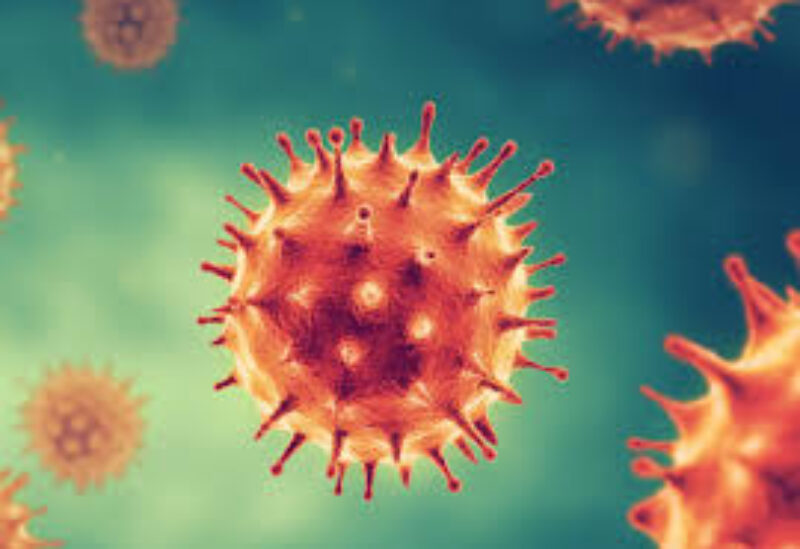
Researchers at the United Kingdom’s University of Oxford have identified the biomarkers to develop more effective COVID-19 vaccines.
A team of scientists who were involved in the development of the AstraZeneca vaccine against the coronavirus found a way to assess the protective efficacy of a vaccine from the immune responses of their trial’s participants, online news agency Nature reported last week.
The research’s findings are the first of its kind to be discovered by vaccine developers.
Identifying these blood markers would improve the efficacy of existing vaccines and speed up the development of new jabs by reducing the need for conducting more large-scale clinical trials, according to the scientists.
Vaccinologist at University College London David Goldblatt told Nature that having “an antibody measure that is a reliable guide to protection” would be ideal as “it could speed up the licensure of new vaccines.”
“We don’t want to develop something just for one vaccine or one kind of vaccine,” Goldblatt cautioned.
“We’ve got all these manufacturers around the world, developing vaccines based on different platforms.”
There are currently six WHO-recommended vaccines in total and a dwindling global supply of them.
With newly diagnosed COVID-19 infections every day, people are beginning to worry about more dangerous variants that could potentially arise.
The strain of concern at the moment is the Delta variant, first identified in India, which has proven to be the most infectious one yet.
The new strain has raised even more concerns about how well the currently available vaccines will be able to protect against the virus.
“The power of a correlate in vaccines is profound. If there’s a reliable correlate, then it can be used in clinical trials to make decisions as to what vaccines are likely to work, what form of vaccines are likely to work, or how durable the vaccines are going to be,” Director of the Center for Virology and Vaccine Research at Boston-based Beth Israel Deaconess Medical Center Dan Barouch told Nature.
Biomarkers, or correlates of protection, are identified by comparing the immune responses from trial participants who have been protected by a vaccine to those who got infected after getting vaccinated, often referred to as ‘breakthrough cases’.
However, since the efficacy of the available vaccines has been quite decent, it has taken jab makers more time than expected to determine markers of protection provided by the vaccine on ‘breakthrough cases’.
With the lack of studies on these breakthrough infections, several researchers have tried to determine how effective COVID-19 vaccines are by comparing already-published data on jab efficacy with those from earlier trials.
Earlier studies showed that the extent to which people are protected against the virus – whether its with the antibodies they developed from a previous infection or through a vaccine – depends on the severity of the infection in question.
The findings revealed that virus-blocking antibodies were a good predictor of a vaccine’s success.
Pfizer and Moderna’s mRNA vaccines have been known to trigger higher levels of antibodies compared to the AstraZeneca and Johnson & Johnson jabs.
The Oxford-AstraZeneca trial confirmed the relationship between higher neutralizing anti-bode levels and protection through the comparison of immune responses in 171 breakthrough cases with over 1,400 people who were vaccinated but did not develop asymptomatic infections.
Participants that had higher levels of neutralizing antibodies were more likely to be asymptomatic if they were infected later on.
According to Nature, researchers of the topic believe that an array of protective responses and their effects need to be determined to help predict how effective a vaccine will be.
Antibodies that were effective against COVID-19 in clinical trials and the immune responses brought on by vaccines to fight off other infections both play an equally important role in predicting vaccine efficacy.
However, Pfizer’s vice president and chief scientific officer of viral vaccines, Philip Dormitzer, told Nature that it is not yet clear whether the high levels of antibodies were able to explain the protection of its vaccine as their levels can be undetectable after receiving just one vaccine shot.
He added that laboratory tests and real-world studies suggested that the jab offered strong enough protection after one dose and that neutralizing antibodies did a poor job at predicting vaccine efficacy against other variants as their levels could wane over time.
The decision on the application of correlates of protection for COVID-19 vaccines lies in the hands of health regulators, Dull suggested, adding that it is important to tread carefully when attempting to determine and apply these correlates of protection.